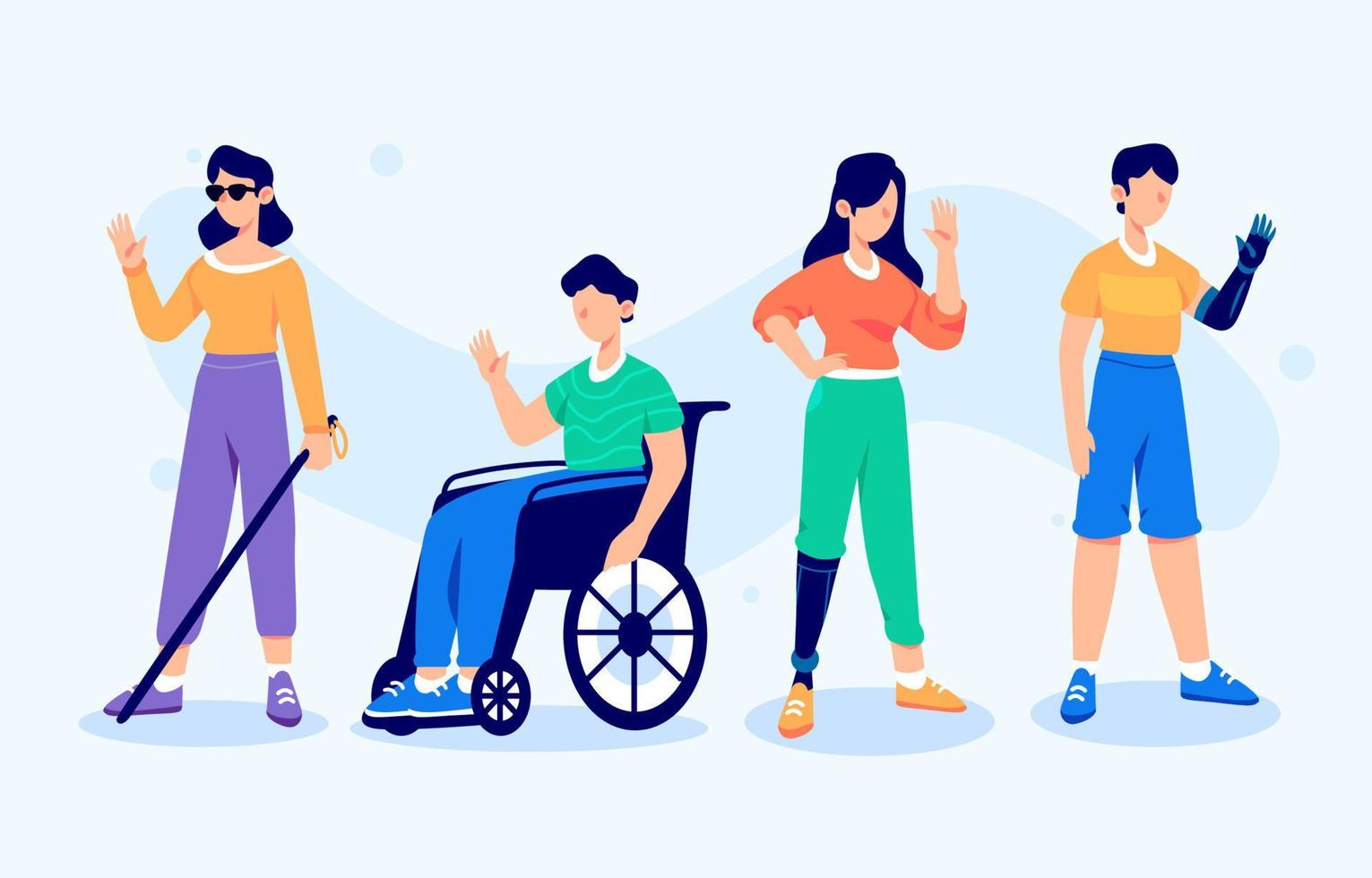Discovering Cutting-edge Approaches to Special Needs Solutions and NDIS Solutions for Improved Support
The landscape of impairment solutions and NDIS offerings is quickly evolving. Innovative approaches are arising to improve support for people with handicaps. From the integration of advanced technologies to personalized treatment models, each approach plays a critical function. Area engagement and collaboration among service suppliers are similarly vital. As these elements integrated, they raise important concerns about future directions and the influence on specific empowerment. What might this mean for the future of disability assistance?
Embracing Modern Technology in Impairment Solutions
Embracing technology has actually become essential in the realm of disability solutions, where innovation plays a crucial duty in improving access and assistance. Assistive modern technologies, such as speech recognition software and wheelchair aids, enable people with specials needs to navigate their atmospheres a lot more separately. Smart home gadgets, equipped with voice-activated controls, facilitate day-to-day jobs, promoting autonomy and comfort.
Telehealth solutions have actually likewise changed access to medical care, allowing people to seek advice from professionals from another location, thus getting over geographical obstacles. In addition, mobile applications developed particularly for disability support provide users with sources and devices customized to their needs, promoting neighborhood interaction and understanding sharing.
Personalized Treatment Versions for Specific Empowerment
As the landscape of special needs solutions evolves, personalized treatment versions emerge as an important approach to equip individuals with special needs. These versions prioritize personalized evaluations, guaranteeing that services align very closely with individual goals, preferences, and abilities. By concentrating on the specific circumstances of each individual, caretakers can develop customized support strategies that advertise autonomy and enhance lifestyle.
Integrating input from the people obtaining treatment is crucial, fostering a collaborative relationship in between company and clients. This client-centered technique not just enhances involvement yet additionally develops trust fund, motivating people to take an active role in their treatment.
Customized care models can adjust to modifications in a person's demands over time, making certain ongoing relevance and assistance. By empowering people via tailored techniques, these designs substantially contribute to boosted end results and an extra comprehensive society, where everyone has the opportunity to grow.
Neighborhood Involvement and Support Networks
Community involvement and assistance networks frequently play a critical function in boosting the total health of people with specials needs. These networks offer crucial resources, cultivating links that encourage individuals to get involved fully in their neighborhoods. ndis registered provider. Engaging with local organizations, volunteer teams, and peer support group can produce a feeling of belonging and reduce isolation

These networks encourage cooperation amongst family members, solution suppliers, and area participants, leading to an extra comprehensive environment. ndis services. By using the strengths of varied stakeholders, people with impairments can access a broader variety of support options, eventually improving their lifestyle and fostering an extra inclusive culture
Joint Strategies Among Company
Collective strategies amongst solution companies are important for supplying comprehensive assistance to people with handicaps. By promoting partnerships amongst different companies, company can share sources, expertise, and proficiency, boosting the general high quality of treatment. Such collaboration permits an extra integrated solution distribution version, where customers get collaborated support tailored to their distinct requirements.
In these participating frameworks, communication is crucial. Normal conferences and information-sharing systems guarantee that all stakeholders are lined up in their approaches and goals. This harmony not only enhances solution performance yet also boosts the experience for individuals with specials needs and their family members.
Additionally, collective strategies can result in innovative solutions, as varied perspectives commonly influence creative analytic. By functioning together, service carriers can navigate challenges much more successfully and supporter for systemic changes that benefit their clients. Eventually, these collaborations add to a holistic assistance system that empowers people with disabilities to attain their goals and boost their top quality of life.
Enhancing Accessibility Via Cutting-edge Design
Cutting-edge layout plays an essential duty in boosting access for individuals with handicaps. By applying global style principles and incorporating assistive technologies, environments can be made a lot more inclusive and practical. This method not just advantages individuals but also advertises a more comprehensive understanding of access in society.

Universal Design Principles
Universal Style Principles play an essential role in enhancing access for individuals with disabilities. These principles advocate for creating settings, products, and services that are useful by all people, despite their capacities or disabilities. By highlighting inclusivity in style, they encourage engineers, metropolitan planners, and item developers to think about diverse individual requires from the start. This method not only facilitates physical access but additionally advertises social involvement and self-reliance. Using Universal Style Concepts can result in ingenious options that attend to barriers, making sure that tools and rooms are functional for everybody. Inevitably, these concepts cultivate a society of acceptance and understanding, producing a much more fair society where all individuals can thrive without limitations.
Assistive Modern Technology Assimilation
Incorporating assistive technology into different environments significantly improves availability for individuals with impairments. disability support. This combination involves the use of gadgets and software program created to help daily activities, enhance interaction, and foster independence. Speech recognition software application enables individuals with limited wheelchair to engage with modern technology perfectly, while wheelchair help such as smart mobility devices provide navigating aid. Advancements like increased truth can develop immersive learning experiences, making education and learning much more comprehensive. Additionally, the unification of assistive technologies within public areas, such as responsive signage and sound overviews, makes sure that individuals with sensory problems can navigate their environments successfully. By focusing on the assimilation of these modern technologies, culture can create a much more equitable environment, equipping individuals with impairments to involve totally in their areas
Abilities Advancement and Employment Opportunities
As people with specials needs look for to enhance their self-reliance and top quality of life, abilities advancement plays an essential role in supplying meaningful employment possibility. Customized training programs concentrate on gearing up individuals with essential skills relevant to their desired career paths. These programs are developed to promote both tough and soft abilities, ensuring individuals can navigate the demands of the workplace efficiently.
Partnership in between special needs provider and local services is important in creating paths to employment. Employers gain from a diverse workforce, while individuals access to task opportunities that align with their passions and capacities. In addition, initiatives that advertise inclusive working with techniques add to a more fair task market.
The Function of Peer Assistance in NDIS Providers
Just how can peer assistance boost the experience of individuals utilizing NDIS solutions? Peer assistance plays a critical function in fostering a feeling of neighborhood and belonging among NDIS participants. By linking people with shared experiences, peer support provides emotional support and useful guidance, assisting them navigate the complexities of the NDIS system. This connection typically causes boosted self-confidence and autonomy as individuals discover from one another's trips.
Peer assistance can help with the exchange of details concerning readily available sources and services, encouraging individuals to make informed decisions. It also encourages energetic engagement in their own treatment plans, advertising self-advocacy and strength. Additionally, peers can use understandings right into dealing approaches and individual growth, improving general wellness. Inevitably, integrating peer support within NDIS solutions not just improves specific experiences but also adds to a much more supportive and inclusive atmosphere for all participants.
Future Patterns in Special Needs Support Providers
Future trends in handicap assistance services are significantly shaped by innovation integration, which enhances accessibility and communication. Customized assistance strategies are arising to better accommodate private requirements, advertising better independence amongst clients. Additionally, community-based service versions are getting traction, promoting inclusivity and partnership within local settings.
Innovation Assimilation in Provider
With the quick improvement of innovation, the integration of ingenious solutions in special needs assistance services is coming to be significantly crucial. Assistive modern technologies, such as communication gadgets and movement help, enhance the freedom and lifestyle for people with impairments. Digital systems help with less complicated access to services, allowing customers to attach with suppliers and peers via telehealth and on-line support groups. Additionally, information analytics and smart home systems permit customized treatments, optimizing resource allotment and improving end results. Arising modern technologies like expert system and artificial intelligence hold promise for anticipating analytics, possibly identifying demands before they occur. As these technologies progress, they will certainly redefine the landscape of website here special needs assistance services, ensuring a lot more reliable and receptive care for individuals.
Individualized Assistance Strategies
Customized assistance methods are increasingly coming to be a keystone of effective impairment services, as they deal with the distinct needs of people. These strategies stress individualized preparation and implementation, customizing support to align with personal goals, preferences, and abilities. By including input from clients, experts, and households, companies can develop customized strategies that promote autonomy and empowerment. Such approaches can include flexible solution delivery designs, normal examinations, and adjusting assistance as needs advance. In addition, the combination of technology can improve individualized strategies, permitting real-time modifications and enhanced communication. As the landscape of disability services remains to evolve, the concentrate on customized support will certainly be essential in ensuring that individuals get the thorough treatment they should have, eventually resulting in far better results and lifestyle.
Community-Based Service Versions
Community-based service versions represent a transformative shift in the landscape of impairment assistance solutions, highlighting inclusivity and access. These models prioritize neighborhood resources and community involvement, allowing individuals with specials needs to obtain support within their own neighborhoods. By cultivating cooperation between company, neighborhood federal governments, and community organizations, these versions boost the accessibility of tailored services that fulfill varied requirements. Individuals take advantage of enhanced social integration and decreased isolation, as they involve with peers and area members. Community-based methods frequently leverage the staminas of casual assistance networks, promoting sustainable options that empower individuals. As the read this article demand for individualized treatment rises, these models are most likely to shape the future of special needs assistance, driving advancement while ensuring equitable access to necessary solutions.
Frequently Asked Concerns
Just How Can Family Members Locate the Right Disability Assistance Services?
Households can discover the right handicap support services by researching neighborhood carriers, seeking suggestions from experts, examining service offerings, and evaluating compatibility with their specific requirements to guarantee comprehensive and tailored support for their loved ones.
What Are the Qualification Criteria for NDIS Solutions?
To get NDIS solutions, individuals have to be under 65 years old, have a considerable and permanent handicap, be an Australian citizen or local, and need assistance to take part in life activities.
Just how Does the NDIS Funding Process Work?
The NDIS funding process involves participants sending a gain access to demand, getting approval based upon eligibility, and after that producing a customized strategy describing their supports. Funds are alloted appropriately, allowing access to needed services and sources.
What Should I Do if My NDIS Plan Is Rejected?
If an NDIS plan is refuted, one ought to evaluate the decision, gather supporting proof, call the NDIS for explanation, and take into consideration submitting an ask for an evaluation or appealing the decision if required.
Are There Assistance Providers Particularly for Kid With Disabilities?
Yes, there are assistance solutions especially made for children with handicaps. These services include his comment is here specialized education and learning programs, treatment options, and household support resources targeted at enhancing the general health and advancement of affected kids.
Joint approaches amongst service suppliers are necessary for delivering extensive assistance to individuals with disabilities. Exactly how can peer assistance improve the experience of people utilizing NDIS services? Peer assistance can promote the exchange of details about offered sources and solutions, encouraging people to make educated decisions. Personalized support techniques are progressively coming to be a cornerstone of effective impairment solutions, as they provide to the special needs of people. Community-based solution designs represent a transformative change in the landscape of disability support solutions, highlighting inclusivity and accessibility.